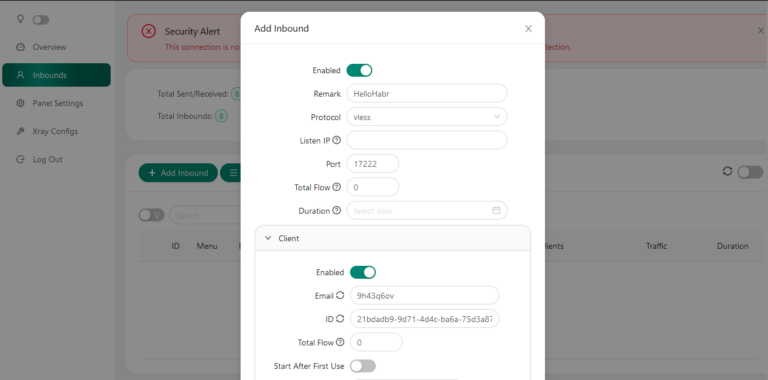Is it worth learning English at an online English school?
If you want to learn English (in fact, any other subject, even programming), then there's a good chance you'll turn to an online school. An online school is an organization that can provide you with a teacher who will teach you according to the school’s curriculum.
Why are they so popular? And are there any disadvantages, or is it worth learning English in other places? I am sharing my thoughts based on my own experience:
1) They have financial resources for marketing;
2) People (not to mention organizations) are more willing to pay an organization than an independent teacher; the word “school” for many means that there are certain quality standards.
In addition, there are benefits for the student:
1) Conversation clubs (online) are often included in the cost of classes;
2) You can quickly start classes;
3) You can choose the schedule yourself;
4) If something happens to the teacher, they will quickly find a new one who will continue classes according to the curriculum
5) No additional materials are needed, everything is on the online platform, including automatic checking of homework;
Among the obvious shortcomings:
1) Payment is always made in advance, often for several lessons;
2) Canceling lessons a short time before the start often means loss of money;
3) The teacher is often alone in the first lesson – and another one will teach you;
But I would say that if we put aside external components, the only truly important element for a student is the teacher. Not everyone has time to visit conversation clubs, although there are free alternatives online (and live in any city with a population of over a million). The platform is, in most cases, a textbook translated into electronic format. At the same time, some schools do not have their own platform, but upload materials to the Edvibe website (formerly Progress.me), which anyone can do. As for “grammar trainers,” the free analogues from Google are no worse.
Regarding quality:
Of the amount you transfer, only about 30% goes to the teacher. It is clear that there will not be much flexibility on the part of the teacher if he receives 300 rubles. per lesson. And the current rates of online schools for teachers are exactly the same, 300-600 rubles. per lesson, while you can pay the school both 1000 and 1600 rubles for 45 minutes (hourly lessons are even more expensive). There are discounts, but you will have to buy larger packages. Although this can be a plus – when a purchase has already been made, there is more motivation to complete it. Few people would dare pay a large sum of money to an independent teacher to teach for a year, and the school has at least a visible guarantee that the lessons will be taught.
The requirements for selecting teachers differ (everywhere, of course, they ask you to give a trial lesson), but for such rates, mostly people without much experience will work with you – often students and people who simply know English (the same student, if you study with him directly, he will charge you 500 r/hour, but at school you can pay 1500).
It’s interesting that the schools themselves are very active in recruiting teachers, citing the advantages: “no need to prepare for class,” “no need to check homework,” “classes using ready-made materials on an online platform.” It is clear that under such conditions the lessons turn out to be quite formulaic.
When hiring a school, they usually ask to record a video in English, and then conduct a demo lesson with a methodologist. In the future, the quality of classes is monitored during introductory lessons (probably, students are also surveyed).
The teacher receives a modest remuneration, but, of course, there are advantages – there is no need to look for students, if a student does not want to study, they will find a new one. Naturally, motivation suffers in such conditions, you have to conduct a lot of lessons in order to somehow survive, there are no special opportunities for creativity.
In general, I don’t think that the level of teachers in online schools is lower; on the contrary, it may be, on average, higher than that of those teachers you can find on Profi.ru, Avito, Italki, Preply, etc. – because there is no selection at all and sometimes you can find very dubious quality for a very high price. Conventionally, we can say that in online schools people know English at a level not lower than B1 (they teach beginners), some have a certificate, some have specialized education. You may come across either a beginner (but motivated) or an experienced one, but without “fire in the eyes”, this is a pure lottery. But the teacher can be changed if necessary.
Please note that there is no personalized approach in online schools, nor are there any special guarantees of raising the level (which they sometimes promise on websites). Courses like “English for travel”, “English for interviews” will be taught by the same teachers, just using different materials – books like “Business Result”, but in electronic form.
At the same time, the price for lessons is not lower than the market price, although it would seem that the process is streamlined and the program is formulaic. But spending on service, managers, programmers, and marketing does not allow prices to be lowered.
To summarize, it is, of course, possible to learn a language in online schools. At the same time, the cost of their services (especially for a short 45-minute lesson) relative to the teacher’s experience and training materials will be overpriced. Whatever they write about “premium services”, “personalized approach”, “easy and with pleasure”, all these are just beautiful words invented by marketers, the bottom line is that to learn a language, you only need a teacher, you, and your time and desire. At the same time, if you don't mind paying too much, then buying a package of lessons could be a way to introduce English into your routine and get you ahead. To start studying in online schools, just leave a request, and they will definitely call you back and you will start studying as soon as possible according to a schedule convenient for you (if you do not immediately make a decision, they will call you periodically and remind you). This is often very important, because the inspiration to learn a foreign language can go away, along with the desire to spend money on it.
But I still believe that a “school” is, first of all, live group classes, and an “online school” is more likely an aggregator of educational services with a certain minimum guaranteed level of quality. Therefore, in any field, be it English, vocal courses, programming, driving, there is always the opportunity to find alternative (often more affordable) options that will not be of lower quality.




